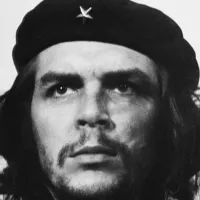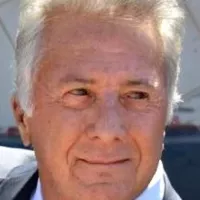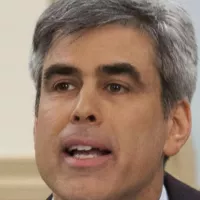Uruguay, officially known as the Oriental Republic of Uruguay, is a South American country. It is bordered by Argentina to the west and southwest, Brazil to the north and northeast, the Río de la Plata to the south, and the Atlantic Ocean to the southeast. Located in the Southern Cone region, Uruguay encompasses about 176,215 square kilometers (68,037 square miles) and has a population of roughly 3.4 million. Nearly 2 million people reside in the metropolitan area of its capital and largest city, Montevideo.
1900: Publication of "Ariel"
José Enrique Rodó's impactful book, "Ariel," was published in 1900, exploring the balance between spiritual values and material progress, and advocating against cultural dominance from Europe and the United States.
July 1902: First International Football Match Outside the British Isles
In July 1902, Uruguay and Argentina played the first international football match outside the British Isles in Montevideo.
1903: Election of José Batlle y Ordóñez and the Beginning of His Reforms
José Batlle y Ordóñez was elected president of Uruguay in 1903, marking the beginning of his influential tenure. His presidency, known for its stability and economic growth, saw the implementation of significant social and political reforms, including a welfare program and increased government participation in the economy.
1904: Blanco Uprising and Battle of Masoller
In 1904, the Blancos, dissatisfied with their limited political power, initiated a rural revolt against the ruling Colorado party. The conflict culminated in the Battle of Masoller, resulting in the death of Blanco leader Aparicio Saravia and the end of the uprising.
1907: Legalization of Divorce
In 1907, Uruguay took a significant step in secularization by legalizing divorce.
1909: Ban on Religious Instruction in State Schools
In 1909, Uruguay banned all religious instruction from state schools, further solidifying the separation of church and state.
1910: Death of Florencio Sánchez
Uruguayan playwright Florencio Sánchez, known for his works addressing contemporary social issues, died in 1910.
1911: Second Term of José Batlle y Ordóñez and Continued Reforms
In 1911, José Batlle y Ordóñez began his second term as president of Uruguay. During this period, he continued to implement his ambitious reform agenda, further shaping the country's social, political, and economic landscape.
1914: Death of Delmira Agustini
Uruguayan poet Delmira Agustini died in 1914.
1917: Death of José Enrique Rodó
José Enrique Rodó, a prominent modernist figure in Uruguayan literature, passed away in 1917.
1917: Complete Separation of Church and State
Uruguay established the complete separation of church and state in its 1917 constitution under the influence of José Batlle y Ordóñez, a prominent Colorado politician who served from 1903 to 1911.
1917: Creation of "La cumparsita"
Uruguayan composer Gerardo Matos Rodríguez composed "La cumparsita," one of the most renowned tangos, in 1917.
1920: Birth of Idea Vilariño
Idea Vilariño, a significant figure in Uruguayan literature, was born in 1920.
1924: Uruguay Wins Olympic Gold in Football
Uruguay secured victory at the 1924 Paris Olympic Games in football.
1928: Uruguay's Second Olympic Gold in Football
Uruguay achieved their second consecutive Olympic gold medal in football at the 1928 Amsterdam Games.
1930: Uruguay's First FIFA World Cup Victory
Uruguay won the inaugural FIFA World Cup, which they hosted, in 1930.
March 1931: Gabriel Terra's Presidency and the Great Depression's Impact
Gabriel Terra assumed the presidency in March 1931, coinciding with the onset of the Great Depression. The economic crisis led to social unrest and political instability in Uruguay.
1931: Death of Juan Zorrilla de San Martín
Juan Zorrilla de San Martín, a renowned romantic poet known for his epic poems about Uruguayan history, died in 1931.
1933: Coup d'état led by Gabriel Terra
In 1933, facing mounting social and political pressures, President Gabriel Terra orchestrated a coup d'état, dissolving the General Assembly and assuming dictatorial powers. This move marked a shift towards authoritarianism in Uruguay.
1934: Promulgation of a New Constitution
Following his coup in 1933, President Gabriel Terra introduced a new constitution in 1934, consolidating his power and centralizing authority in the presidency. This move further solidified his grip on power.
1938: Election of Alfredo Baldomir and Advocacy for Democratic Reforms
General Alfredo Baldomir, brother-in-law of the outgoing president Gabriel Terra, won the 1938 presidential election in Uruguay. Facing pressure from labor unions and the opposition, Baldomir advocated for democratic reforms such as free elections, freedom of the press, and a new constitution.
1939: Uruguay's Neutrality and the Battle of the River Plate
Uruguay declared neutrality in 1939 at the outbreak of World War II. However, the country found itself involved in the Battle of the River Plate, where British warships engaged the German ship Admiral Graf Spee near Uruguay's coast. The German ship sought refuge in Montevideo but was later asked to leave.
January 1943: Record High Temperature in Paysandú City
On January 20, 1943, Paysandú city reached 44°C (111°F), setting the national extreme temperature record at the time.
1945: Uruguay Joins the United Nations
Uruguay formally joined the Allied forces in World War II in 1945 and became a founding member of the United Nations, signaling its commitment to international cooperation and peace.
1947: Carrasco International Airport Inauguration
Carrasco International Airport, serving Montevideo, was officially opened in 1947.
1947: British Ownership of Railway System
Up until 1947, a significant portion (90%) of Uruguay's railway system was under British ownership.
1949: Nationalization of Railways and Other Utilities
The Uruguayan government undertook a nationalization effort in 1949, bringing the railways, electric trams, and the Montevideo Waterworks Company under state control.
1959: Death of Juan José Morosoli
Uruguayan writer Juan José Morosoli, known for his short stories, died in 1959.
1963: Start of Emigration Wave
From 1963 onwards, a significant emigration wave began in Uruguay.
June 1967: Record Low Temperature in Melo City
On June 14, 1967, Melo City experienced a record low temperature of -11.0 °C (12.2 °F).
1967: Adoption of the Current Uruguayan Constitution
Uruguay adopted its current constitution in 1967, which includes provisions allowing citizens to repeal laws or change the constitution through popular initiative.
1967: Uruguay Hosts FIBA World Championship
Uruguay hosted the official Basketball World Cup, known as the 1967 FIBA World Championship.
1968: State of Emergency Declared
In 1968, President Jorge Pacheco declared a state of emergency in Uruguay, marking an escalation of political instability and government crackdown on dissent.
1971: Publication of "Open Veins of Latin America"
Eduardo Galeano, a renowned Uruguayan writer, published his influential work "Las venas abiertas de América Latina" ("Open Veins of Latin America") in 1971, examining the history of exploitation in Latin America.
1972: Suspension of Civil Liberties
In 1972, the Uruguayan government, led by President Jorge Pacheco, further escalated its authoritarian measures by suspending civil liberties, curtailing freedoms of assembly, speech, and the press.
1973: Military Coup in Uruguay
A significant event in Uruguayan history, the 1973 military coup had a lasting impact on the country and inspired films like Ana Díez's "Paisito".
1973: Coup d'état and Establishment of Civic-Military Dictatorship
In 1973, amidst a climate of economic instability and political unrest, the Uruguayan armed forces, at the behest of President Juan María Bordaberry, dissolved Parliament, effectively ending democratic rule. This action ushered in a period of civic-military dictatorship that would last until 1985.
1973: Parliament Dissolved, Civilian-Military Regime Established
In 1973, amidst growing economic and political turmoil, the Uruguayan armed forces, with the support of President Juan María Bordaberry, dissolved Parliament, ushering in a period of civilian-military rule.
1973: Suspension of Provisions in the Uruguayan Constitution
In 1973, many provisions of Uruguay's 1967 constitution were suspended.
1973: Beginning of Civil-Military Rule and Operation Condor
Uruguay entered a period of civil-military rule that lasted from 1973 to 1985, marked by political repression and state terror known as Operation Condor, a CIA-backed campaign. This period saw the suppression of political opponents, censorship of the media, and the dismantling of the trade union movement.
1976: Uruguay Under Repression
By 1976, Uruguay had the highest per capita number of political prisoners globally, according to Edy Kaufman of Amnesty International, highlighting the widespread repression during the civil-military rule.
1979: Death of Juana de Ibarbourou
Juana de Ibarbourou, a noted Uruguayan poet, passed away in 1979.
November 1980: Military-Drafted Constitution Rejected in Referendum
In November 1980, a referendum held in Uruguay resulted in the rejection of a new constitution that had been drafted by the ruling military government. This event signaled a public desire for a return to democratic rule.
1980: Economic Downturn During Military Rule
By 1980, Uruguay's economy had taken a downturn, experiencing a 20% decline in GDP and a surge in unemployment to 17%, highlighting the economic challenges faced during the military rule.
1982: Publication of "Memory of Fire"
Eduardo Galeano commenced his trilogy "Memoria del fuego" ("Memory of Fire") in 1982, offering a unique perspective on the history of the Americas.
1984: National Elections Held
Following the rejection of the military-backed constitution, Uruguay held national elections in 1984, marking a significant step towards the restoration of democracy.
March 1985: Restoration of Freedom of the Press
Upon assuming office in March 1985, President Sanguinetti reinstated complete freedom of the press in Uruguay, marking a return to democratic values after a period of military dictatorship.
1985: Shift from Passenger to Cargo Trains
In 1985, the "National Transport Plan" determined that maintaining passenger trains was not economically viable. While cargo trains continued to operate for loads exceeding 120 tons, bus transportation emerged as the more cost-effective alternative for travelers.
1985: Julio María Sanguinetti's Presidency and Democratic Consolidation
Julio María Sanguinetti of the Colorado Party assumed the presidency in 1985, marking the return to democratic rule in Uruguay. His administration focused on consolidating democracy, implementing economic reforms, and addressing the legacy of military rule.
1985: Re-establishment of Constitutional Provisions in Uruguay
The provisions of Uruguay's constitution that were suspended in 1973 were re-established in 1985.
1985: End of Civil-Military Rule and Economic Decline
The year 1985 marked the end of 12 years of civil-military rule in Uruguay. Despite efforts to stabilize the economy, it had deteriorated significantly by 1985, with a 20% drop in GDP and a 17% unemployment rate.
1985: End of the Civic-Military Dictatorship
Uruguay's period of civic-military rule came to an end in 1985, paving the way for the restoration of democratic institutions and processes. This transition marked a significant turning point in Uruguay's political history.
1988: Discontinuation of Passenger Train Service
Passenger train service in Uruguay was officially discontinued in 1988.
1988: Uruguay Hosts Americas Basketball Championship
Uruguay hosted the official Americas Basketball Championship in 1988.
1989: Luis Alberto Lacalle Elected President, Amnesty for Human Rights Abusers Endorsed
Luis Alberto Lacalle of the National Party won the 1989 presidential election in Uruguay. A referendum held during his term endorsed amnesty for individuals who had committed human rights abuses during the period of military rule.
1990: End of Sanguinetti's First Term
In 1990, Julio María Sanguinetti's first term as president of Uruguay came to an end, marking a successful transition back to democratic governance after years of military rule.
1991: Increase in Strikes in Uruguay
Uruguay experienced a surge in strikes in 1991 as workers demanded wage increases to counter inflation and opposed the government's privatization plans.
1992: General Strike and Rejection of Privatization
A general strike was called in Uruguay in 1992, and a referendum revealed strong opposition to the government's privatization policy, with 71.6% voting against the privatization of telecommunications.
1993: Reintroduction of Commuter Rail Service
Passenger rail service, specifically commuter lines into Montevideo, resumed operations in 1993. Currently, there are three suburban lines in operation.
1994: Economic Difficulties Due to Trade Liberalization
In 1994, Uruguay encountered economic challenges stemming from trade liberalization, which led to a larger trade deficit.
1994: Sanguinetti Re-elected, Continuation of Reforms
Julio María Sanguinetti was re-elected as president of Uruguay in 1994. His second term saw the continuation of economic and structural reforms initiated after the return to democracy, focusing on areas such as the electoral system, social security, education, and public safety.
1995: Economic Difficulties Due to Trade Liberalization
In 1995, Uruguay continued to face economic difficulties due to trade liberalization, which led to a larger trade deficit.
1996: Constitutional Amendment Introduces New Electoral System
A constitutional amendment passed in 1996 introduced a new electoral system in Uruguay, significantly impacting subsequent elections, including the 1999 presidential election.
1996: Slowdown in Privatization
The pace of privatization in Uruguay slowed down in 1996 despite the Montevideo Gas Company and the Pluna airline being turned over to the private sector.
1997: Punta del Este International Airport Opening
Designed by Uruguayan architect Carlos Ott, the Punta del Este International Airport, situated 15 kilometers from Punta del Este in the Maldonado Department, began operations in 1997. This airport holds the position of the second busiest air terminal in Uruguay.
1997: Full Digital Telephone Coverage
Uruguay achieved a significant milestone in telecommunications in 1997, becoming the first nation in the Americas to attain complete digital telephone coverage. The government-owned telephone system boasted comprehensive coverage throughout the country. Since the 1990s, there have been ongoing, and sometimes contentious, discussions regarding the potential partial privatization of the system.
1997: Uruguay Hosts Americas Basketball Championship Again
Uruguay once again served as the host nation for the official Americas Basketball Championship in 1997.
1999: Establishment of the Carlos Gardel Museum
A museum dedicated to Carlos Gardel, the famous tango singer, was founded in Valle Edén, near Tacuarembó, Uruguay, in 1999.
1999: Jorge Batlle Elected President Under New Electoral System
In 1999, Jorge Batlle of the Colorado Party was elected president of Uruguay under a new electoral system that had been implemented following a constitutional amendment in 1996.
1999: Economic and Financial Crisis in Uruguay
Uruguay was hit by a significant economic and financial crisis between 1999 and 2002, primarily due to the spillover effects of Argentina's economic problems.
2000: Release of "Los días con Ana"
Marcelo Bertalmío's film "Los días con Ana" ("Days with Ana") premiered in 2000.
2001: Uruguayan Sign Language Official Recognition
In 2001, Uruguay officially recognized Uruguayan Sign Language (LSU) as an official language under Law 17.378.
2001: Impact of Argentine Credit Default on Uruguay
The Argentine credit default in 2001 had a significant impact on Uruguay, making several of its services, previously considered too expensive, exportable due to price adjustments.
November 2002: Coalition Collapse and Economic Crisis
The political coalition between the Colorado and National parties in Uruguay collapsed in November 2002, leading to the withdrawal of National Party ministers from the cabinet. This coincided with a severe economic crisis in Uruguay, triggered by regional economic downturns, particularly in Brazil and Argentina.
2002: Addressing Poverty and Unemployment
Following the 2001 Argentine credit default, the Frente Amplio government in Uruguay implemented an emergency plan to tackle widespread poverty and unemployment while continuing to service the country's external debt.
2002: End of Economic and Financial Crisis in Uruguay
Uruguay's economic and financial crisis, which began in 1999, ended in 2002. During this period, the economy shrank by 11% and unemployment rose to 21%.
2003: Union Membership Growth Begins
In 2003, Uruguay had approximately 110,000 union members.
2004: Economic Growth in Uruguay
Between 2004 and 2008, Uruguay's economy grew at an annual rate of 6.7%.
2004: Tabaré Vázquez Elected President, Broad Front Gains Majority
In 2004, Tabaré Vázquez of the Broad Front coalition was elected president of Uruguay, securing a majority for his party in both houses of Parliament. This victory marked a significant shift in Uruguayan politics.
2004: US and Uruguay Sign Bilateral Investment Treaty
In 2004, a bilateral investment treaty was signed between the United States and Uruguay, strengthening commercial ties between the two countries.
2004: Broad Front Wins Parliamentary Elections
In the 2004 Uruguayan general election, the Broad Front won an absolute majority in the Parliamentary elections.
2004: Uruguay Signs Stand-By Arrangement with IMF
The Batlle government in Uruguay signed a three-year stand-by arrangement worth $1.1 billion with the International Monetary Fund (IMF) in 2004, committing to fiscal surplus, low inflation, debt reduction, and structural reforms to enhance competitiveness and attract foreign investment.
2004: International Recognition for Uruguayan Films
The Uruguayan film "Whisky," directed by Juan Pablo Rebella and Pablo Stoll, garnered international acclaim in 2004.
2004: Jorge Drexler Wins an Academy Award
Uruguayan musician and actor Jorge Drexler was honored with an Academy Award in 2004 for composing "Al otro lado del río" ("On the Other Side of the River"), featured in "The Motorcycle Diaries," a film about Che Guevara's life.
March 2005: Establishment of Ministry of Social Development and Launch of PANES
Upon assuming office in March 2005, President Vázquez created the Ministry of Social Development and implemented PANES, a $240 million National Plan to Address the Social Emergency, aiming to reduce poverty by providing conditional cash transfers to low-income families.
2005: Low Residence Permits Granted
In 2005, Uruguay granted 1,216 residence permits.
2006: Global Ranking in Agricultural Production and Importance of Family-Run Farms
In 2006, FAOSTAT data highlighted Uruguay as a top global producer in several agricultural products: soybeans (9th), wool (12th), horse meat (14th), beeswax (14th), and quinces (17th). Notably, family-managed farms constituted the majority (25,500 out of 39,120) of farms in Uruguay. Beef and wool production served as the primary activities and income sources for 65% of these farms. Vegetable farming accounted for 12%, followed by dairy farming at 11%, and hogs and poultry each at 2%. Beef emerged as Uruguay's leading export, generating over US$1 billion in revenue in 2006.
2006: Uruguay Ends Agreement with IMF
In 2006, Uruguay successfully terminated its agreement with the IMF ahead of schedule, having repaid its debt early, but continued to uphold a number of the policy commitments.
2006: Uruguay's Continued Struggle for World Cup Qualification
Uruguay missed out on qualification for the 2006 FIFA World Cup.
2006: PISA Test Results
Uruguay participated in the 2006 PISA test, where it showed a wide variation in scores among schools, suggesting a significant impact of socio-economic factors on educational outcomes.
January 2007: US and Uruguay Sign Trade and Investment Framework Agreement
The United States and Uruguay signed a Trade and Investment Framework Agreement in January 2007, further expanding their commercial relationship.
2007: Uruguay Avoids Recession During Global Downturn
Between 2007 and 2009, Uruguay was the only country in the Americas that did not technically experience a recession, defined as two consecutive quarters of economic contraction.
2007: Launch of the Plan Ceibal
Between 2007 and 2009, Uruguay's Plan Ceibal, part of the One Laptop per Child project, involved 362,000 students and 18,000 teachers.
2007: High Cattle Population and Land Distribution
Uruguay boasted a cattle herd of 12 million in 2007, resulting in the highest cattle per capita globally at 3.8. However, there was a notable concentration of ownership, with 11% of farmers (those with at least 500 head of cattle) controlling 54% of the cattle population. Conversely, 38% of farmers operated on smaller plots with herds averaging less than 100 head.
July 2008: Poverty Reduction in Uruguay
By July 2008, poverty in Uruguay had decreased from 33% in 2002 to 21.7%, while extreme poverty dropped from 3.3% to 1.7%.
2008: New Migration Law Improves Immigrant Rights
A new migration law passed in Uruguay in 2008 granted immigrants equal rights and opportunities as Uruguayan nationals, provided they could demonstrate a monthly income of $650.
2008: Release of "Paisito"
Ana Díez directed "Paisito," a film about the 1973 military coup in Uruguay, which was released in 2008.
2008: Religious Survey
In 2008, a survey conducted by the INE of Uruguay revealed that Catholic Christianity was the dominant religion, encompassing 45.7% to 81.4% of the population.
May 2009: Uruguay Lifts Ban on Homosexuals Serving in the Military
In May 2009, Uruguay lifted the ban on homosexuals serving in the military after the defense minister signed a decree ensuring non-discrimination based on sexual orientation in military recruitment.
2009: Uruguay Avoids Recession During Global Downturn
Between 2007 and 2009, Uruguay was the only country in the Americas that did not technically experience a recession, defined as two consecutive quarters of economic contraction.
2009: First Positive Net Migration in 44 Years
For the first time in 44 years, Uruguay experienced a positive net migration rate in 2009. The country issued 3,825 residence permits, a significant increase from the 1,216 granted in 2005. Argentina and Brazil accounted for 50% of these new legal residents.
2009: Death of Idea Vilariño
Idea Vilariño, a prominent Uruguayan poet, passed away in 2009.
2009: Carrasco International Airport Expansion and Recognition
In 2009, Puerta del Sur, the operator of Carrasco International Airport, invested $165 million to expand and modernize the airport's facilities. This project, led by Rafael Viñoly Architects, included a new passenger terminal aimed at boosting capacity, promoting commercial activities, and enhancing tourism in the region. The airport's enhancements earned it recognition as one of the top four airports globally by the London-based magazine Frontier in its 27th edition. With a capacity to handle 4.5 million passengers annually, Carrasco International Airport served as the base for PLUNA, Uruguay's flag carrier.
2009: One Laptop per Child Initiative
In 2009, Uruguay became the first nation to provide every primary school student with a laptop as part of the Plan Ceibal, reflecting its commitment to integrating technology into education.
2009: Investment in Education
In 2009, Uruguay's government planned to allocate 4.5% of its GDP to education.
2009: José Mujica Elected President
José Mujica of the Broad Front won the presidency in 2009, defeating Luis Alberto Lacalle of the Blancos.
February 2010: Uruguay's Contribution to UN Peacekeeping Forces
As of February 2010, Uruguay had 1,136 military personnel deployed in Haiti for MINUSTAH and 1,360 deployed for MONUC in the Congo, highlighting the country's substantial contribution to UN peacekeeping efforts.
December 2010: Record Low Unemployment in Uruguay
Unemployment in Uruguay reached a record low of 5.4% in December 2010.
2010: Latinobarómetro Poll Reveals High Support for Democracy in Uruguay
A 2010 Latinobarómetro poll showed that Uruguayans were among the biggest supporters of democracy in Latin America and highly satisfied with its implementation in their country.
2010: Economic Growth and Debt
In 2010, Uruguay experienced significant economic growth, with real GDP estimated to have increased between 8% and 8.5%, according to the IMF. Additionally, in the second quarter of 2010, the country's gross public sector debt decreased after a period of growth, reaching $21.885 billion USD, representing 59.5% of the GDP.
2010: Uruguay Implements Measures to Retain Football Players
In 2010, the Uruguayan government introduced measures aimed at encouraging football players to remain in the country.
2010: US Provides Military Assistance to Uruguay
In the fiscal year 2010, the United States provided $1.7 million in military assistance to Uruguay, including $1 million in Foreign Military Financing and $480,000 in International Military Education and Training.
2010: Uruguay's Resurgence in the World Cup
Uruguay achieved a commendable performance at the 2010 FIFA World Cup, reaching the semi-finals for the first time in 40 years. Diego Forlán was awarded the Golden Ball as the tournament's best player.
2010: Agricultural Sector Contribution
Uruguay's agriculture sector, largely export-focused, contributed 9.3% to the nation's GDP and provided employment for 13% of the workforce in 2010. Data from Uruguay's Agriculture and Livestock Ministry revealed that meat and sheep farming utilized 59.6% of the land. This figure rose to 82.4% when considering cattle breeding linked to other agricultural practices such as dairy, forage, and crop rotation, including rice.
January 2011: Rise in Unemployment in Uruguay
Unemployment in Uruguay increased to 6.1% in January 2011, up from its record low of 5.4% in December 2010.
2011: Predominantly European Ancestry
According to the 2011 census, 87.7% of Uruguay's population identified as having European ancestry. The majority of Uruguayans with European roots are descended from individuals who immigrated during the 19th and 20th centuries, primarily from Spain and Italy, followed by smaller numbers from Germany, France, and Britain. Earlier settlers often arrived from neighboring Argentina. People of African descent constitute around 5% of the population, and there is also a notable Japanese community. The overall ethnic makeup of Uruguay shares similarities with bordering Argentine provinces and Southern Brazil.
2011: Jewish Community in Uruguay
As of 2011, Uruguay had a Jewish community of 20,000 individuals and 12 synagogues in its capital city, Montevideo.
2011: Projected Economic Growth
Following the strong growth in 2010, Uruguay's economy was projected to grow by 5% in 2011.
2011: Uruguay's 15th Copa América Title
Uruguay won the Copa América for the 15th time in 2011, solidifying their position as the tournament's most successful team.
2012: Abortion Legalized
In 2012, Uruguay took a significant step in expanding women's rights by legalizing abortion. This decision reflected a growing social and political movement for reproductive rights.
2012: Tourism Industry Significance
The tourism sector played a crucial role in Uruguay's economy in 2012. It was estimated to support around 97,000 jobs and contribute 9% to the GDP both directly and indirectly.
December 2013: Cannabis Legalization
Uruguay became the first nation globally to fully legalize marijuana in December 2013. This legislation permitted the growth, use, and sale of cannabis. The Uruguayan Senate passed the law with a vote of 16 in favor and 13 against.
2013: Recreational Cannabis Legalized
Uruguay became the first country in the modern era to legalize recreational cannabis in 2013, marking a significant shift in global drug policy.
2014: Tabaré Vázquez Elected President
In 2014, Tabaré Vázquez was elected for a second non-consecutive term as President of Uruguay.
March 2015: Tabaré Vázquez's Second Presidential Term Begins
In March 2015, Tabaré Vázquez began his second non-consecutive term as President of Uruguay.
2015: Significant Increase in Union Membership and Recognition of Labor Rights
By 2015, the number of union members in Uruguay saw a fourfold increase from its 2003 levels, reaching more than 400,000 out of a workforce of 1.5 million. The International Trade Union Confederation recognized Uruguay as the leading nation in the Americas for upholding "fundamental labour rights," specifically highlighting freedom of association, collective bargaining, and the right to strike. This high unionization level contributed to a reduction in socioeconomic disparities.
2015: Rise of "Cumbia Cheta" and "Cumbia Pop"
By mid-2015, Uruguayan bands Rombai and Márama, representing the emerging genres of "cumbia cheta" and "cumbia pop," gained significant popularity across Latin America, particularly in Uruguay and Argentina.
2017: Uruguay Leads Latin America in Labor Conditions
A 2017 report by the Inter-American Development Bank (IADB) on labor conditions in Latin America ranked Uruguay as the top performer in the region. Uruguay excelled in nearly all sub-indexes, including those related to gender, age, income, formality, and labor participation.
2017: Low Population Growth, High Life Expectancy, and Low Fertility Rate
In 2017, Uruguay had a lower population growth rate than other Latin American countries, with a median age of 35.3 years. This higher median age can be attributed to a low birth rate, high life expectancy, and a relatively high emigration rate among younger generations. The total fertility rate (TFR) in Uruguay in 2017 was 1.70 children per woman, falling below the replacement rate of 2.1. This rate is significantly lower than the peak of 5.76 children per woman recorded in 1882.
2017: Uruguay Hosts FIBA AmeriCup
Uruguay hosted the 2017 FIBA AmeriCup, a major basketball tournament for national teams in the Americas.
2017: Uruguay Signs UN Treaty on the Prohibition of Nuclear Weapons
Uruguay signed the UN treaty on the Prohibition of Nuclear Weapons in 2017.
2019: Reporters Without Borders Press Freedom Index
In 2019, Reporters Without Borders ranked Uruguay 19th out of 180 countries in its worldwide press freedom index, highlighting the country's relatively high level of press freedom.
2019: Uruguay's Forest Landscape Integrity Index Score
In 2019, Uruguay scored 3.61 out of 10 on the Forest Landscape Integrity Index, ranking 147th globally.
March 2020: End of Left-Wing Rule in Uruguay
In March 2020, Uruguay saw the end of 15 years of left-wing leadership under the Broad Front coalition, with Luis Lacalle Pou of the centre-right National Party sworn in as president, ushering in a conservative government.
2020: Luis Alberto Lacalle Pou Becomes President
After 15 years of left-wing rule, Luis Alberto Lacalle Pou, of the conservative National Party, was elected as the 42nd President of Uruguay in 2020, succeeding Tabaré Vázquez.
2020: Uruguay Rejoins Inter-American Treaty of Reciprocal Assistance
In 2020, Uruguay rejoined the Inter-American Treaty of Reciprocal Assistance (TIAR or "Rio Pact").
2021: Renewable Energy Capacity
In 2021, Uruguay had a substantial installed renewable electricity capacity. This included 1,538 MW from hydropower, 1,514 MW from wind power (ranking it 35th globally), 258 MW from solar power (placing it 66th globally), and 423 MW from biomass.
January 14, 2022: Record High Temperature in Florida City
On January 14, 2022, Florida city tied the national extreme temperature record of 44°C (111°F), first set in Paysandú city on January 20, 1943.
2023: Uruguay Ranks High on Democracy Indices
In 2023, Uruguay ranked high on global democracy indices, securing the 31st position for electoral democracy and the 2nd position, behind Switzerland, for citizen-initiated direct democracy, according to the V-Dem Democracy Indices.
2023: Global Innovation Index Ranking
Uruguay secured the 63rd position in the Global Innovation Index in 2023.
Mentioned in this timeline

Basketball is a team sport played on a rectangular court...

Ernesto Che Guevara was a prominent Argentine Marxist revolutionary physician...

A laptop or notebook computer is a small and portable...
India officially the Republic of India is a South Asian...
Germany officially the Federal Republic of Germany is a nation...

Inflation in economics signifies an increase in the average price...
Trending

54 minutes ago Sidney Crosby Captans Team Canada, Passing Torch to McDavid for 2026 Olympics.
2 hours ago Hailey Baptiste in Dubai 2026; Kasatkina Discusses Olympics and Figure Skating.

3 hours ago Dustin Hoffman joins Adam Sandler in Netflix's 'Time Out' remake cast.

3 hours ago Peggy Fleming's 1968 Olympic Gold: A Nation's Hope and Skating Legend Revisited.
4 hours ago Cody Rhodes Faces Jacob Fatu, Sami Zayn in Elimination Chamber Qualifier on SmackDown

4 hours ago Jonathan Haidt warns of social media's impact; Experts debate online regulation for kids.
Popular

Kid Rock born Robert James Ritchie is an American musician...
The Winter Olympic Games a major international multi-sport event held...

Pam Bondi is an American attorney lobbyist and politician currently...

Barack Obama the th U S President - was the...

XXXTentacion born Jahseh Dwayne Ricardo Onfroy was a controversial yet...

Michelle Obama is an American attorney author and former First...